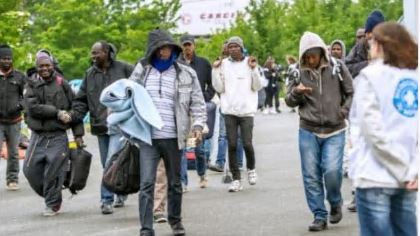Climate Change and Migrant Rights

Climate change appears to be one of the main factors of migration in Africa.
The COP 28 conference in Dubai was marked this Sunday by events organized on the occasion of World Human Rights Day.
Ozawa Bineshi Albert, head of the Climate Justice Alliance group, is calling for an end to what she says is the forced disappearance of many indigenous peoples.
Human rights defenders are also concerned about the situation of migrant workers, particularly in the Middle East, who are considered second-class citizens. Victims of discrimination, they most often receive a minimum wage and live on the margins of society.
Climate change appears to be one of the main factors of migration in Africa. If global warming reaches 1.7°C, between 17 and 40 million people in sub-Saharan Africa could be displaced within their own countries by 2050, according to the Institute for Security Studies (ISS).
If Africa is responsible for only 3% of historic carbon emissions, climate disasters cost the continent nearly US$15 billion per year.
Some African countries most exposed to climate change already face extreme poverty, food insecurity, conflicts, poor governance, large budget deficits and the poor diversification of an economy based on agriculture.

